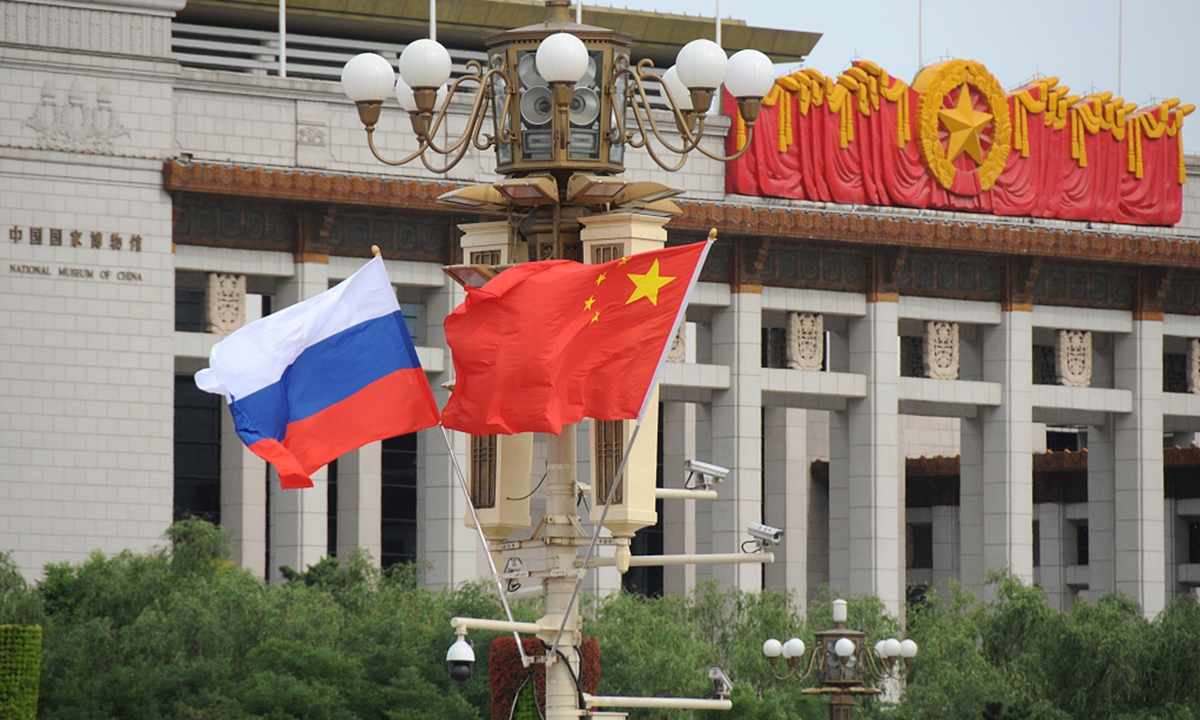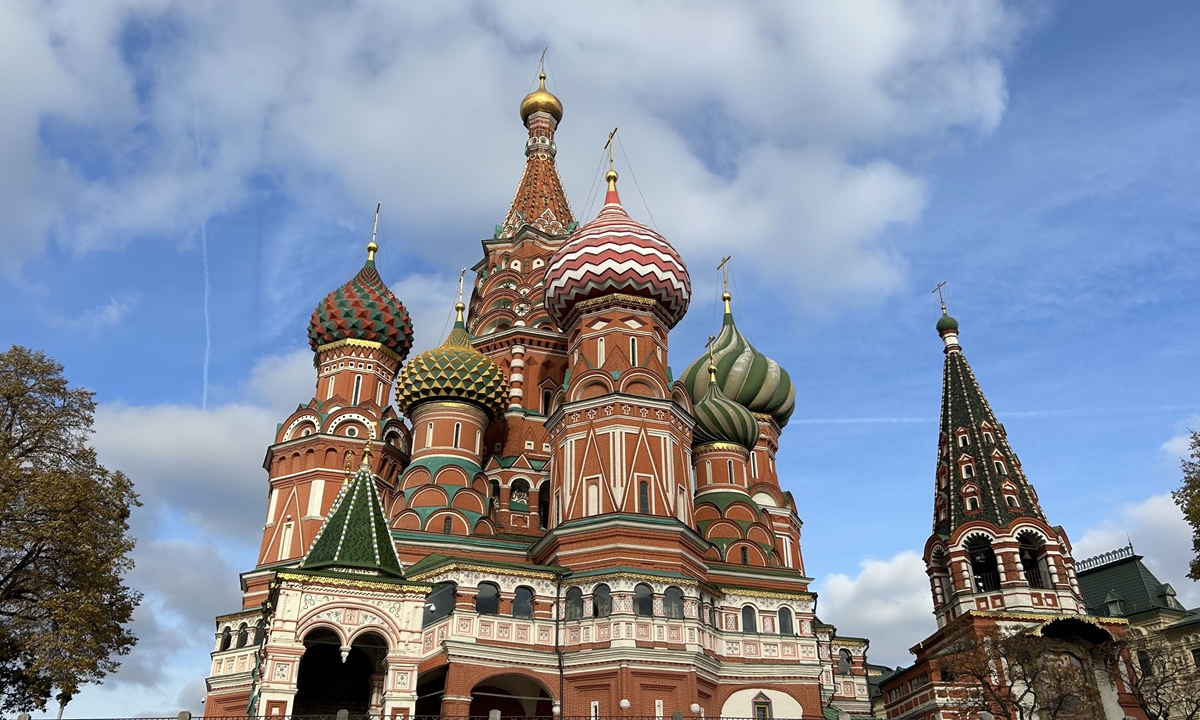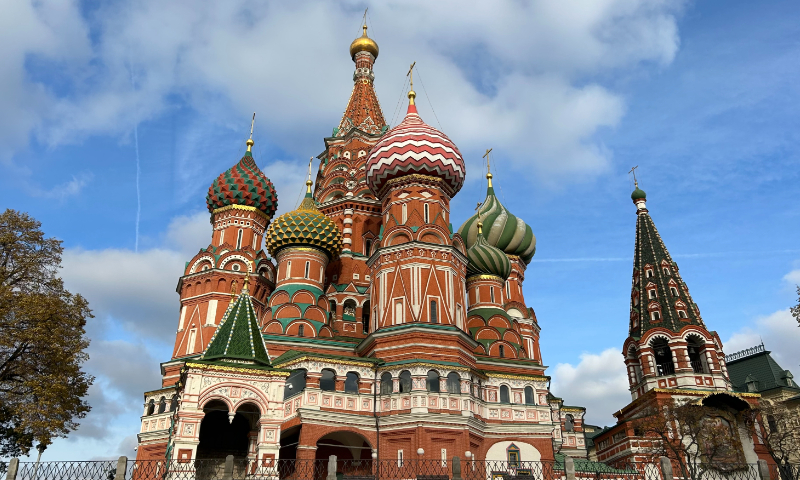
The Saint Basil's Cathedral in city center of Moscow Photo: Zhang Han/GT
The tall, red walls of Moscow's "Kremlin" - a word that literally means fort - are the symbol of Russia in a political sense. At the same time, it is a city with a nearly nine-century-long history, a hybrid of both Tsarist imperial and Soviet legacy, and is home to roughly 1.7 million people, permanently and temporarily combined.
A trip to the city, my first time in Russia, has enriched my understanding of the city and the country. Through the New Generations program organized by Russia's Sputnik News Agency, I was able to exchange ideas with reporters from more than 10 countries across various continents, broadening my perception of international media landscapes and deepening my recognition of the Western monopoly on narrative.
Arriving at the Vnukovo International Airport at midnight in late October, the warmth I felt came not only from the very functional heating indoors, thanks to Russia's rich, affordable energy sources, but also from the Chinese language signs that dispelled my nervousness in a new country where English is not a common language.
Though the taxi driver and program coordinators said that it was the worst time to visit Moscow - with temperatures near zero Celsius, strong winds and no snow yet - I was fascinated by the beauty of the city.
The trees were golden and red by the glittering Moscow River that has nourished the city for centuries. There were also colorful cathedrals and churches, and large commune buildings that very much resembled the apartments where my family lived in the 1990s.
In consolidating today's Russia, a struggle seems to exist between cutting away from the Communist era and inheriting the Soviet Union legacy, with a history of both sacrifice and heroism in World War II, yet less told in Western chronicle of the massive war, and the dark hues of purges, depicted and reflected on in literature and in films.
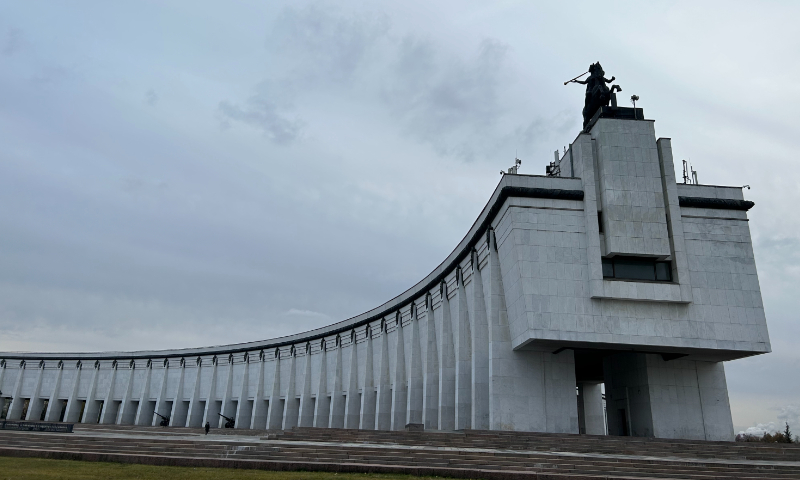
The Victory Museum in Moscow Photo: Zhang Han/GT
Such sentiments of Russia's struggle, and the different Western narrative, were gained through the New Generations city tour. At the Victory Museum, the stories of the loss of 27 million Soviet soldiers and civilians were told via life-size wax figures, war-time documents and relics against the backdrop of solemn music. Close to Red Square, imperial-era churches were confiscated after the Communist revolution and sometimes used as schools and offices. They returned to religious functions after the collapse of the Soviet Union.
The Kremlin, the political heartland of the Russian Federation, refers to the fortification originally built in the 15th and 16th centuries. A statue of Karl Marx stands near the Russian parliament, the State Duma, as one of a few preserved statues. Those of Soviet leaders, except several of Lenin far from the city center, were removed after 1991.
Besides the struggle stemming from history, there are things changing alongside the conflict with Ukraine since February 2022.
Mastercard and VISA cards can no longer be used due to sanctions. It's hard to get rubles at a bank in Beijing even though Russia and China's bilateral trade is active and may cross the $200 billion mark in 2023. Luxury brands have also left the splendid Gum department store and other shopping malls.
The country has managed to find alternative buyers of its oil and gas after its divorce with the EU, and can make direct transactions bypassing US dollars. Local Russian clothing and jewelry brands are flourishing to occupy the market.
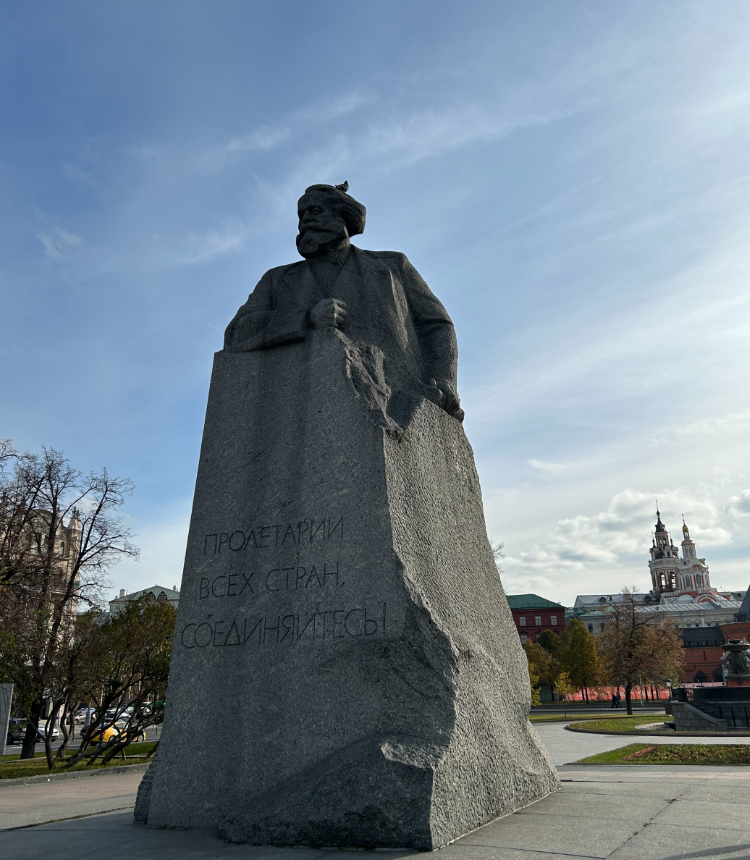
Statue of Karl Marx stands in the vicinity of Russian State Duma in Moscow Photo: Zhang Han/GT
As for the media, Sputnik and other Russian outlets have faced either a complete ban or flow restrictions on Facebook, X (formerly Twitter) and Google search. Yet Telegram appears to be providing a fair place for the other side of the conflict to speak.
Monopoly is not only about Western platforms, but also about the content. My international colleagues and I did an analysis on Western news outlets, big names including Reuters and the Guardian, and Russian ones such as Russia Today (RT) and TASS. Judging from the number and balance of sources, the credibility of sources (named or anonymous), the clarity of the data cited and the diversity of opinions, it seems Russian outlets are "more professional" than Western ones.
It is ironic that today is called a multipolar world when, in reality, it is focused on the vision of the US or the West and how they sell that strategy to the rest of the world, Victoria Polikarpova, director of the international section of Sputnik, said at a seminar session.
Competition among different news organizations is no less fierce in Russia than other countries where the media is privately funded, according to Vasily Pushkov, the international cooperation director for Rossiya Segodnya, the owner of Sputnik.
Questioning how a magazine funded solely by a bicycle company can act impartially in a parliament discussion on widening bike lanes or narrowing it for cars and pedestrians, Pushkov said it is the Western monopoly on narrative that has created and solidified the dichotomy of state/authoritarian vs private/free media.
Steve from Voice of Indonesia shared with me his thoughts on his experience in Moscow. "Having young media personnel from non-Western countries in the program opened my mind. Our different point of view was not a barrier, but it enriched our insight. In a world dominated by the Western media, we need not only a second but also a third and fourth point of view on an issue."
Seeking different views is always important as the world is not black or white. Dinh Ha Linh from Vietnam shared how she changed her perception of "Indonesia as a Muslim country" after learning about the Southeast Asian country's religious diversity and harmony from Steve and his fellow delegate Cindy.
Through the trip, I was able to enrich my knowledge not only about Russia, but also about countries where the delegates come from. More importantly, as media personnel, we saw the need to check news reports from the country we are covering and listen to voices from inside, rather than just browsing Western outlets and letting others speak for us.
